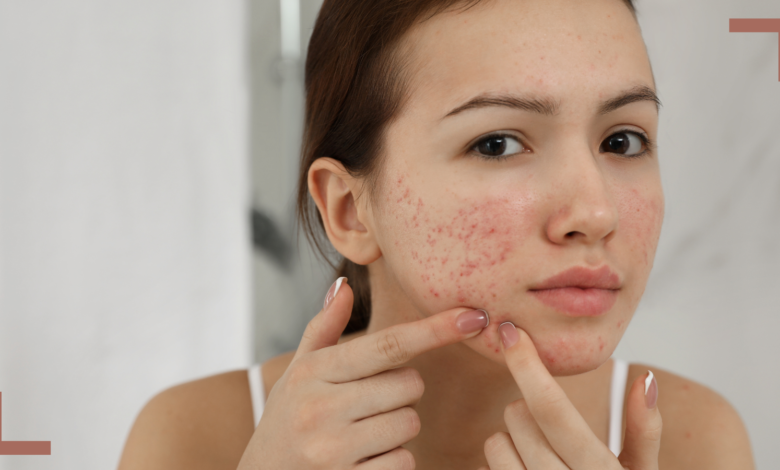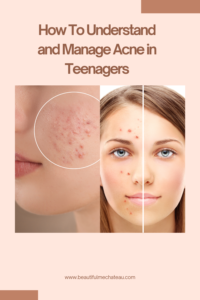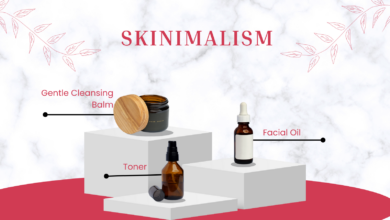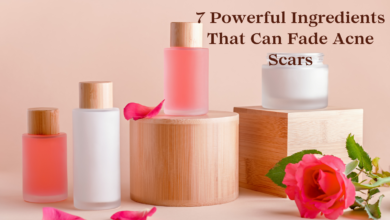How To Understand and Manage Acne in Teenagers
A Guide for Teenage Girls and Their Parents

Acne is painful – on the inside. We live in a culture where not just youth but beauty is worshipped. It’s everywhere, and you can’t escape it. The results of having acne can be emotionally devastating for teenagers as they are extremely conscious of their appearance and their image. Even though they feel they suffer alone, they don’t. The fact is that approximately 85% of the population in the United States has at some point suffered from acne, and approximately 17 million people have acne. Over 70% of teens say that acne has negatively affected them.
If you buy something through the links/banners here, we may earn an affiliate commission at no extra cost. Thank you.
However, the widespread nature of acne does little to ease the pain teens feel. Embarrassment is common, especially for teenage girls who are at a stage of heightened self-awareness and social exploration. Surrounded by images of beauty on TV, in movies, in magazines, and online, the pressure to have flawless skin can be overwhelming.
Causes of Acne in Teenagers
Acne in teenagers is caused by hormones acting on the skin’s oil glands. During puberty, both boys and girls experience an increase in the hormones called androgens. These hormones cause sebaceous glands under the surface of the skin to enlarge. In response, the sebaceous glands produce excess oil. This excess oil mixes with bacteria and dead skin on the skin’s surface and blocks pores. Inside these pores, the bacteria multiply and cause inflammation.
Genetics also play a significant role, so while acne may be unavoidable for some, understanding and managing it can make a huge difference.
Debunking Acne Myths

There are many myths surrounding acne. One common misconception is that chocolate and greasy foods cause breakouts. Dermatologists have found no evidence supporting this claim. However, if certain foods seem to trigger your acne, it’s best to avoid them. However, eating a healthy diet of fruits and vegetables is always beneficial.
Another myth is that acne is caused by poor hygiene. This is not true. Acne results from excess oil production. Overwashing your face or excessively drying products can worsen acne by causing more inflammation and oil production.
Supporting Your Teen
How can parents help their teenager survive acne?
Parents can help their teenage girls through this time by offering a supportive and sympathetic ear. They should help the child focus on all their positive attributes, which will help strengthen the child’s self-esteem. Parents must also be actively involved in helping their children find the best possible cure for their particular form of acne.
Parents should also educate themselves about acne causes and treatments. Thirty years ago, acne was thought to be caused by eating the wrong foods, such as chocolate and potato chips. It’s now known that this isn’t true. Food is not thought to play a large role in acne; it also has nothing to do with skin cleanliness.
Treatment Options
So, how can you treat and prevent this common skin condition?
Light to moderate acne can sometimes be treated with over-the-counter medications. There are many to choose from. Some find that benzoyl peroxide or salicylic acid works well. Benzoyl peroxide is known to kill acne bacteria. Benzoyl peroxide can be found in cleansers and dark spot treatments. Although, it can be drying and make your face look even more irritated, especially when you first start washing with it. Many acne sufferers use a moisturizer on their face after washing. There are many moisturizers available that are specifically designed to help with acne, such as Cetaphil, Eucerin, and Neutrogena.
Severe acne, or acne that has not responded well to over-the-counter products, can be successfully treated with the knowledge and expertise of a dermatologist. A dermatologist will consider many things before suggesting treatment. He will perform a thorough evaluation of the patient, considering things such as the severity of the acne, the patient’s age, lifestyle, and co-existing conditions. The dermatologist may then suggest a combination of two or three therapies for the best treatment.
Whatever one of the literally hundreds of treatments you choose, or if you seek the help of a dermatologist, remember that acne takes time to disappear. Overnight or miraculous results don’t happen. It takes six to eight weeks to see results from treatment. Unfortunately, in the life of a teenage girl, six to eight weeks can feel like a lifetime.
Patience and Professional Guidance
Remember, acne treatment takes time; it typically takes six to eight weeks to see significant improvement. While this may feel like a long time for a teenage girl, patience is essential.
Before starting any treatment, seeking advice from a dermatologist can be highly beneficial. With so many products available, a dermatologist can help create an individualized plan tailored to your skin’s needs, ensuring the best possible outcome.
Sharing is caring. Spread some love by sharing this post. Remember to follow us on Instagram and Facebook, or subscribe to our newsletter to stay current and unlock the secrets of a beautiful you.



